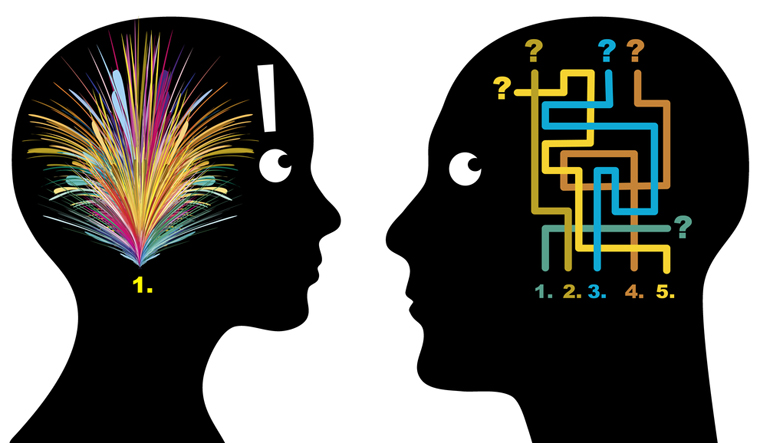Women's brains appear to be three years younger than men's of the same age, which may explain why females stay mentally sharp for longer, say scientists, including one of Indian origin.
"We're just starting to understand how various sex-related factors might affect the trajectory of brain ageing and how that might influence the vulnerability of the brain to neurodegenerative diseases," said Manu Goyal, an assistant professor at the Washington University in the US.
"Brain metabolism might help us understand some of the differences we see between men and women as they age," Goyal said.
The brain runs on sugar, but how the brain uses sugar changes as people grow and age.
In the study published in the journal Proceedings of the National Academy of Sciences, researchers studied 205 people to figure out how their brains use sugar.
The study participants—121 women and 84 men, ranging in age from 20 to 82 years—underwent PET scans to measure the flow of oxygen and glucose in their brains.
For each person, the researchers determined the fraction of sugar committed to aerobic glycolysis—that sustains brain development and maturation—in various regions of the brain.
They trained a machine-learning algorithm to find a relationship between age and brain metabolism by feeding it the men's ages and brain metabolism data.
The researchers entered women's brain metabolism data into the algorithm and directed the programme to calculate each woman's brain age from its metabolism.
The algorithm yielded brain ages an average of 3.8 years younger than the women's chronological ages.
The researchers also performed the analysis in reverse: They trained the algorithm on women's data and applied it to men's.
This time, the algorithm reported that men's brains were 2.4 years older than their true ages.
"The average difference in calculated brain age between men and women is significant and reproducible, but it is only a fraction of the difference between any two individuals," Goyal said.
"It is stronger than many sex differences that have been reported, but it is nowhere near as big a difference as some sex differences, such as height," he said.
The relative youthfulness of women's brains was detectable even among the youngest participants, who were in their 20s.
"It's not that men's brains age faster—they start adulthood about three years older than women, and that persists throughout life," said Goyal.
"What we don't know is what it means. I think this could mean that the reason women don't experience as much cognitive decline in later years is because their brains are effectively younger, and we are currently working on a study to confirm that," he said.
Older women tend to score better than men of the same age on tests of reason, memory and problem solving.
The researchers are now following a cohort of adults over time to see whether people with younger-looking brains are less likely to develop cognitive problems.





.jpg.image.100.58.jpg)




